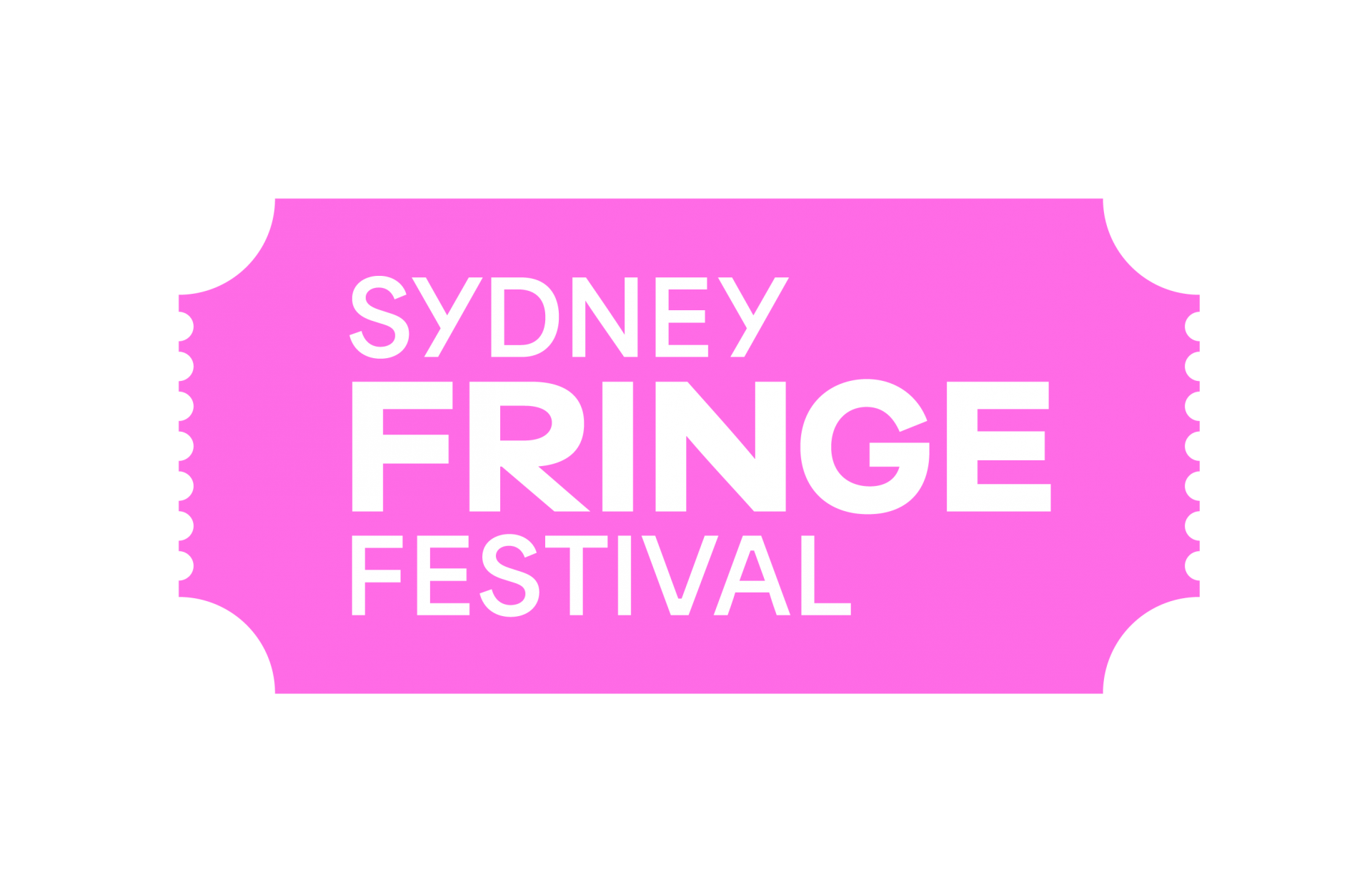At the pointy end of the 2025 Sydney Fringe, we share our thoughts on further shows from the Fringe.
Sh!t Theatre, Or What’s Left of Us: ⭐⭐⭐.5
Sh!t Theatre powerhouse duo Louise Mothersole and Rebecca Biscuit have returned to the Sydney Fringe. Their show from last year’s festival, Drink Rum with Expats, won over audiences with its blend of multimedia, free alcohol, comedy and heart. Their new offering, Or What’s Left of Us, retains the last two of those to explore themes of grief, loss, and dealing with trauma through music.
Or What’s Left of Us has two major narratives based on Mothersole and Biscuit’s experiences. In the first, the duo investigate the destruction of a folk song room in West Yorkshire. In the second, they acutely reflect on the loved ones they’ve lost. The former includes a capella performances, audience interaction, and comical descriptions of the people you’d find in a room where folk songs are performed. The latter is much more intimate and serious.
Mothersole and Biscuit repeatedly warn the audience that this show is not like their last; gone is the multimedia, stage diving, and face paint. But some things have remained. Both are still engaging performers, creating a strong bond with the audience. Their humour is again whip smart. They’re not the best singers. But most importantly, they leave a profound impact. The losses they have experienced are heartbreaking, and the audience feels that. Music’s role as a way of processing grief is clear, as is its ability to bring people together. The pair’s hosting of a post-show singalong in the New Theatre foyer exemplifies those.
Ultimately, Or What’s Left of Us is a tale of two stories. Though the second is much more resonant than the first, making the first feel drawn out and somewhat redundant, the powerful ending is what audiences will remember. And it really is powerful.
Soup Friends: ⭐⭐⭐⭐
This is fringe theatre.
Soup Friends is an experimental work. Thematically, it takes audiences through the mind of the artist, the preparation of a performance space, and the process of developing a show. Physically, it consists of Harry McGee and Ludomyr Kemp-Mykyta laying tape across a floor, building a chair, and speaking about the power of theatre. Both are in their underwear for most of this. Another actor, Cooper Donald McDonald, appears in a terrible Elvis Presley wig and oversized suit, performing some horrifyingly bad karaoke. He needs a belt for his suit. Badly.
This is either the best or worst show ever. On the one hand, the actions described above have no tangible connection; they play out in a bizarre fever-dream like sequence that defies explanation. On the other, it is incredibly entertaining to watch Kemp-Mykyta fail at building a chair. The natural question to ask would be, Why am I watching this? But, the performers are too charming and the audience is too busy laughing to ask this.
The charm of Soup Friends is the charm of fringe theatre. Fringe theatre is inherently weird, unusual, and rough around the edges. The shows are experiments in which the audience and the performers are the subjects; neither really know what’s going to happen. But both groups buy in to this mystery. They willingly take the plunge and expose themselves to something new. The risk may not always pay off, but when it does, it’s something special.
Soup Friends presents that. There are moments when it fails, moments when it works, and moments of pure chaos. And if you join Pummel Squad for that ride, you will understand the essence of fringe theatre.
Traffic Light Party: ⭐⭐⭐⭐
Traffic Light Party, directed by Brea Macy and produced by Jezebel Productions, explores the complex landscape of early 20s dating life from within the confines a cheekily-themed house party. With strong cast dynamics and good design, it is a fun show. But, its script packs in a lot when less would be better.
Traffic Light Party is inspired by the party theme accordingly named. Wear a traffic light colour according to your romantic or sexual availability – green for open and single, red for taken or not interested, and yellow for “try your luck” or “it’s complicated” – and see what happens. It’s a sound basis for a Euphoria or Heartbreak High-esque young love scenario, perfect fodder for drama.
The cast perform well, understanding their characters and the beats of Izzy Azzopardi‘s script. Of particular note is the interplay between Reid Tucker (Jordy Stewart) and Phoenix Lonergan (Travis Howard); a subplot about the social anxiety associated with coming out that the two performers capture splendidly. Also of note is Isaac Harley, who captures the fuckboy persona of his character Samson McKay while bringing to light the attachment issues Samson desperately tries to mask. Grace Easterby as Chloe Cooper and Caitlin Green as Amber Massuli provide strong supporting performances, despite comparably having less to do.
That impression reveals an area for improvement. Azzopardi’s script is so replete with ideas, dynamics and characters that it does not offer these equal consideration. Key concepts and dynamics are explored in detail, but numerous others are introduced and then either quickly canvassed or left unresolved. There is just too much going on to address it all. The show is also beholden to other storytelling barriers. For example, there are moments of ensemble performance which elucidate the play’s core themes but are separate to the plot. These are initially enjoyable, but feel repetitive once those themes are well established. Such loose ends and repetition could be remedied with fewer interruptions and more distillation.
Nonetheless, there is a lot to like in Traffic Light Party. It is a green flag for Jezebel productions and all involved.
